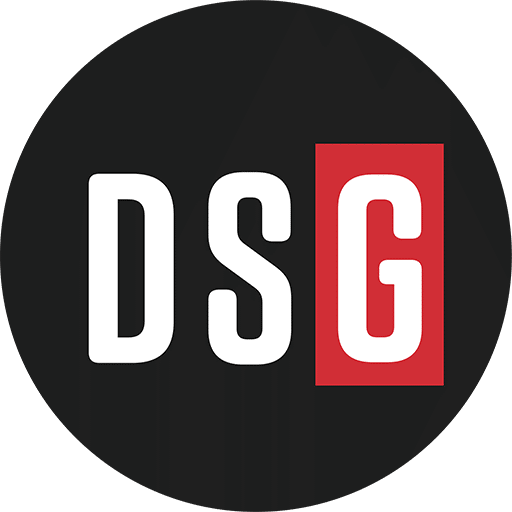Listen to the full conversation with Marty Daley, now available on-demand.
Marty Daley is the CEO of Marco Rubber, an asset-light, technology-enabled distributor of technical rubber products and parts serving thousands of customers worldwide. After working for companies like Wesco, Sonepar, Interline Brands and True Value Hardware, Daley was ready to drive rapid growth in a smaller company by leveraging leading-edge technology in a technical business.
In a recent episode of Wholesale Change, Daley recently spoke with Jonathan Bein, Ph.D. about his company’s game-changing acquisitions and the kind of service that brings in new customers and keeps existing accounts coming back.
Jonathan Bein: Looking at your background, you have such absolute depth and richness in distribution. Can you talk about your journey to get to this place?
Marty Daley: I’m the guy that chose to be in the distribution space. My first role in industrial distribution was fresh out of college with a company called Morrell Group. The president brought me into his office and said, “Marty, I want you to figure out how to get these two constituents talking to each other so we can go after these automotive programs.”
That was my introduction to industrial distribution. I learned early in my career that if you leverage communication and technology to focus in on the customer, you can make an impact.
Bein: One of the things we talk about on this show is interesting business models. That leads me to ask, is Marco Rubber a distributor that manufactures or a manufacturer that distributes?
Daley: I don’t look at Marco as either of those, and I think our model is unique enough that we shouldn’t. Marco is a technology-enabled virtual manufacturer of technical rubber products and related parts. We’re not your father’s distribution business. We’re asset-light. We don’t carry huge amounts of inventory. We carry the right amount of inventory. Where we succeed and differentiate ourselves is by leveraging our technology to have access to the inventory that’s available across our entire network. Equally as important, we have access to the capabilities of our partners so that we can aggregate and share data with our sales organization, who works directly with customers. So, I would say we’re neither. We are a virtual manufacturer.
Bein: Tell us what you mean by virtual manufacturer.
Daley: We have a lot of options when it comes to providing the perfect part for our customers. We act like we are the manufacturer, meaning we partner directly with the customer. We will work directly with the customer on the application they’re looking to purchase products to use on, and we’ll work with that customer on all the various regulations they must be aware of. We’ll work with them on the design and sourcing of the product. We have a good solid, redundant supply chain locally in the United States. But we also have a good presence in Asia and Europe. When we’re looking at that application for the customer, not only can we help them design the perfect part that they need for their application, but we can also give them options. The customer would communicate directly through us to source those products.
Bein: We discussed the concept of a digitally native vertical brand, essentially a manufacturer, distributor and retailer. Warby Parker took glasses and did what Netflix did to the DVD world. It seems like Marco has done a bit of that. Can you comment on that?
Daley: I think that is a good example. If you think about the legacy distributor who moves a box from point A to point B, 20 years ago you could do that and compete. Amazon and others have blown that away. That’s a threat across all of distribution. Marco is built to perform like the Amazon of technical rubber products, except we have technical expertise on staff and available to work with our clients. Customers can come to us through our website, direct email or through a field engineer or inside sales consultant. We have a broad selection of products and capabilities and enjoy working directly with engineering and serious buyers about the right solution for a specific application.
Bein: We discuss the distributor relative value model, which looks at logistic complexity and transaction/product complexity. Amazon and Grainger are on the low end of complexity. Are you at the extreme end of product/transaction complexity and medium on the logistic complexity?
Daley: We are high complexity on the product side. On the logistics side, however, it’s not simple. Our products have shelf lives, cure dates and specific requirements. We have to guarantee it arrives when it is supposed to, is packaged correctly and works for the end-user. All these things are important components, and much different than what Grainger and Amazon are doing.
Technical rubber products are relatively low cost but have a high cost of failure. Think of the Challenger space shuttle. I believe that tragedy was due to an O-ring failure in the right solid rocket booster. The seal was built to spec but didn’t calculate the temperature on the launchpad the morning of the launch. The cost of a solid rocket booster is a significant number; the seal is relatively inexpensive.
At Marco, we help make the selection, the sourcing and the design of seals and those components as easy as we can for our customers. They know they can get a quality product, on time, for their application and eliminate any downtime and risk. We partner with them throughout the process. We build their confidence, so the process is quicker and easier next time.
Bein: Is there a reason you don’t go through distribution?
Daley: We do go through distribution, just not exclusively. We have partners we work with that are distributors. We like to be able to control the quality side of things, which is very important when dealing with the NASAs of the world.
We don’t turn away any customer, and we have a saying that all customers should be treated special, just not necessarily the same. We have to ensure that the customers with a more technical application requirement get the right resource for the perfect outcome.
Bein: I love analytically driven businesses, and I know that’s something you are proud of. Can you speak about how you think about analytics in your business?
Daley: In our business, analytics are table stakes. You know the saying, “you can’t manage what you can’t measure”? We implemented our NetSuite ERP back in October 2020. That was the foundation for the data warehouse we have built. We want to track every piece of data that comes in and out of Marco. We want to track it so we can pull on it at some point in time. We’ve since implemented a data warehouse through Power BI that allows us to get in and mine that information. From there, we’ve set up specific reporting so that our managers can go in and get the critical KPIs for their departments. They can run canned reports to see how their business performs in real-time, which is pretty powerful.
We train everyone to use the system and watch the analytics closely. We want to use the data but also triangulate data with reality. In addition to the data alone, we talk directly to the customers and the sales rep.
Bein: You mentioned that you apply analytics on the employee side regarding your culture.
Daley: My first day, I walked into the Marco headquarters and asked where my telephone was. The IT guy said they were all voiceover IP and used headsets. I learned that Marco is serious about being fully technology-enabled on day one. Our entire organization uses very little paper, and we share data electronically. It’s wired into our DNA. We have a digitally-native culture, but we also focus heavily on culture. We’re this virtual manufacturer in the middle between important constituents, and a lot of our success comes down to the human beings on the bus with us. At Marco, we do a lot to keep people engaged. We have done an annual engagement survey for the last three years and speak to all constituents, whether it is a company we acquired or new associates, to gauge how the business is performing. Then we report that information back: Here is what you told us, and here are the actions we will take.
Bein: When you realize you have a problem, what do you do regarding employee engagement?
Daley: We use an online tool called Culture Amp that helps us measure our surveys and slice and dice the data in a million ways so we can look at it from individual departments to individual topics. We make it very clear that it is anonymous. We have learned that as a growing company, people are looking for us to take action faster. From our leadership perspective, we are moving fast. But it gives us pause to take a step back and understand what our employees think. We dial into those types of things and put action plans together. We also measure and benchmark against other industrial distribution companies and startups. We try to fly right between those two goalposts.
Bein: Can customers configure the products online?
Daley: Some tools allow them to configure online as far material selection and sizing. If detailed configurations need to occur, we like to refer that customer to one of our technical inside sales consultants, who will partner with them. But for the most part, you can self-serve. If you’re an engineer and know what you’re looking for, you can go on our website to source exactly what you’re looking for and place the order directly with us, or contact us, and we’ll get back to you with more technical expertise.
Bein: Let’s talk briefly about the acquisitions that have fueled your growth. You have the good fortune of having a terrific private equity company behind you.
Daley: We are fortunate to have a world-class partner supporting our efforts. When I joined the organization, we were a much smaller business. We were very focused on the core tenants that any big company would need to have. We were dialed into what the customers’ needs were, we had a technology-enabled website, and we were digitally native. We also had deep technical expertise with salespeople that have been with us for 18 years. We had this core flywheel and thousands of customers that were coming at us. When we started looking at acquisitions, we thought about what acquisitions would expand our products and offer technical expertise to get us into end markets we have yet to serve.
We added these acquisitions that brought in talent, new products and the additional end markets that we haven’t served before. It’s been very successful for us, and we’re excited about the future.
Once we partner with the owners of the company that we bought, we move quickly to integrate them onto our NetSuite platform. And in doing that, once they’re integrated, that new acquisition can benefit from the Marco flywheel and expertise.


